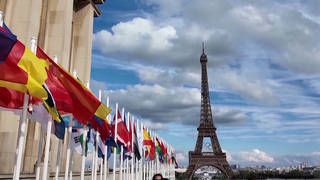
Topics
Today’s Olympic Games have become increasingly corporate, and primarily about money — for the local economy of the host city as well as for the host country. This year, the city of Salt Lake, not known for its raging tourist industry,wants to know: how much more money will be reaped by Utah’s recreation and tourism industries with the publicity generated by hosting the 2002 Winter Olympic Games? How much of the hundreds of millions of dollars spent on the Olympics will show up in the profits of Utah businesses?
But not much attention has been paid to the money taxpayers will spend to host the Winter Olympic Games. Corporations, and the politicians who serve them, promote the Olympics in a sea of ads and TV shows, while the publicis saddled with the cost of the infrastructure and services that make “the Games” possible. In this segment we are going to talk about the economics of the Olympics and other “mega-events.” Then we’ll look at a history of protestduring the Olympics.
Guests:
- Matthew Burbank, co-author of ??Olympic Dreams: the Impact of Mega-Events on Local Politics and associate professor in political science at University of Utah.
- Susi Snyder, program director, Shundahai Network, a steadily growing alliance of multi-cultural activists, that is dedicated to “breaking the nuclear chain” by bridging the gaps between the environmental, peace, justice,indigenous and civil-rights communities.
Tape:
- Larry Gerlach, Professor of Sport History at the University of Utah. This is a speech on the history of protest during the Olympics, given at a Citizen Activist Network forum in Salt Lake City a couple weeks ago.
Thanks to the ”KRCL Olympic collective” for this recording. You can hear their daily reports on the Olympics at www.krcl.org.











Media Options